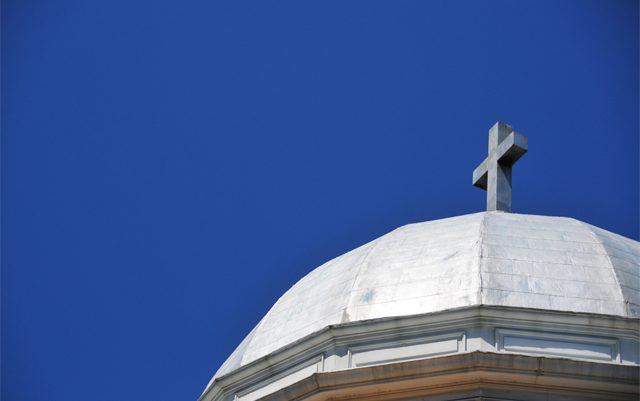With a title like that, I’m sure many of you are expecting some 10,000 word dissertation on the complicated ramifications of combining the subjects of religion and cannabis. My apologies to those excited by the idea of such a read; you won’t find it here.
In fact, both subjects are pretty simple. How someone practices their religion and whether or not someone uses cannabis is absolutely, 100% not your business.
To be sure, there are many – especially in various levels of government – that want you to think those things are very much their business. So when these issues cross paths, lawmakers and law enforcement need you to believe that they have twice the reason to be involved…for the public good, of course.
With the International Church of Cannabis in Denver to a recent case against a Rastafari church in Wisconsin, we see two issues that are no one’s business landing on the radar of authorities.
Since March of this year, two Rastafari men in Madison, Wisconsin – Jesse R. Schworck and Dylan Paul Banger – have been handing out marijuana as a sacrament to parishioners of the Lion of Judah House of Rastafari church. The men claim religious freedom and, naturally, authorities in Madison disagree.
Unfortunately, the track record for using religious freedom arguments in cannabis prosecutions is not good, which highlights the problems of authorities getting involved in things they have no business being involved in to begin with. We have become so used to the idea that we need special permission from the government to do just about anything that very few people raise an objection to stories like these.
One day the notion that giving marijuana to another adult would be deemed a criminal offense will be seen as ludicrous, yet here we are. We must slowly claw and fight our way to get to that day, when most would agree that giving marijuana to someone should not be criminal.
Why is this? Why are we stuck in this slow slog through the muck of prohibition just to get back to the way things should have always been? Because long ago we, as a society in general, surrendered much of the decision-making in our lives to strangers, simply because they got the most votes. “This person got more votes than this person, so the first person must be really smart and they can decide whether or not I’m allowed to give someone else a plant because that decision is just too big for me.”
When you give someone else power over your life, more often than not they will take advantage of that., Almost every single time. In the end, marijuana prohibition is just a symptom of the disease that is the abdication of responsibility all of us participate in.







Simple citizens lost their rights, privileges, and immunities to grow cannabis when their government tricked them into believing its propaganda that “marihuana” was so dangerous that it had to be prohibited for their own good.
Astute citizens can regain their rights, privileges, and immunities to grow cannabis by simply reconstructing the malformed federal definition of Schedule 1 “marihuana” to clearly identify “marijuana” as cannabis smoke, and include specific prohibitions to control the undesired proliferation of that substance.
Congress can specifically reconstruct the existing malformed definition by invoking Section 5 of the 14th Amendment. The necessary and proper reconstruction will carefully de-schedule cannabis for certain citizens, to restore their ability to again grow and sell, or give it away. Big corporations, who are not people, nor citizens, nor voters, get to keep their valued prohibitions that they inspired so long ago, with this reconstructed definition that upholds our Constitution:
The term “marijuana” means all parts of the smoke produced by the combustion of the plant Cannabis sativa L. which is, as are the viable seeds of such plant, prohibited to be grown by or sold by any publicly traded corporation or subsidiary company, and such smoke is prohibited to be inhaled by any child or by any person bearing any firearm, as is the intake of any part or any product of such plant containing more than 0.3% THC by weight unless prescribed to such child by an authorized medical practitioner.
By first clearly identifying marijuana as a familiar, specific, single substance, it becomes easier to remove that substance from Schedule 1 by separately considering the adulterated medical value that it derives from carefully descheduled cannabis plants.
The definition of marijuana won’t change until Congress changes it, so in this election season let’s contact our members of Congress about reconstructing it to carefully de- schedule cannabis.